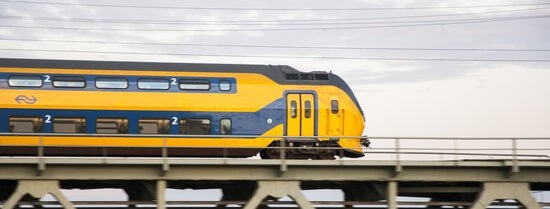In 2024, Dutch Railways (NS) recorded a social profit of €1.33 billion, compared to a financial loss of €141 million. This is according to a new study by Professor Dirk Schoenmaker (Rotterdam School of Management, Erasmus University) and Wander Marijnissen of strategic consultancy firm ftrprf.
The significant positive societal value stems from:
- social inclusion (access to work, school and travel for people with disabilities);
- increase in property values near stations;
- welfare of employees and consumers;
- productive use of travel time.
Negative factors such as delays, biodiversity loss, noise pollution and CO2 emissions are also included in this calculation. In addition, since 2017, NS has been running entirely on 100% renewable electricity. All this together generated around 1.33 billion in social and ecological gains for Dutch society in 2024. This means that, in the long term, the social value of the railway company is 11.3 times higher than its financial value.
Do not just look at the financial picture
By only looking at the financial picture (a loss of 141 million euros), you are doing the NS an injustice. Professor Dirk Schoenmaker emphasises the importance of a well-run NS: 'A well-funded NS is vital for the Netherlands. Focusing only on NS’s financial losses risks undermining a vital public service.'
'NS creates tremendous value by transporting people and improving accessibility - at much lower emissions than cars. Recent experiences in England show what happens when railways are chronically underfunded: higher fares, declining service quality, and worsening accessibility.'

'From social inclusion to climate benefits: rail transport delivers far more to society than it costs'
Wander Marijnissen
Econometrician

Traffic jams more expensive than delayed trains
In the long term, the combined financial, ecological and social value of NS amounts to €72.8 billion. This is a conservative estimate, excluding avoided CO₂ emissions and relief from traffic congestion and parking pressure. According to the AEX Futureproof Index Report previously published by the same researchers, NS's social return is therefore many times greater than that of any AEX company.
The researchers also calculated that delays cost society €6.8 billion per year. However, by way of comparison, the cost of delays per kilometre travelled is twice as high for car traffic.
- Professor
- More information
The study utilised the integral value methodology developed by Schoenmaker and Professor Willem Schramade (Nyenrode). The financial and sustainability reports formed the basis for the analysis.
- Related content

